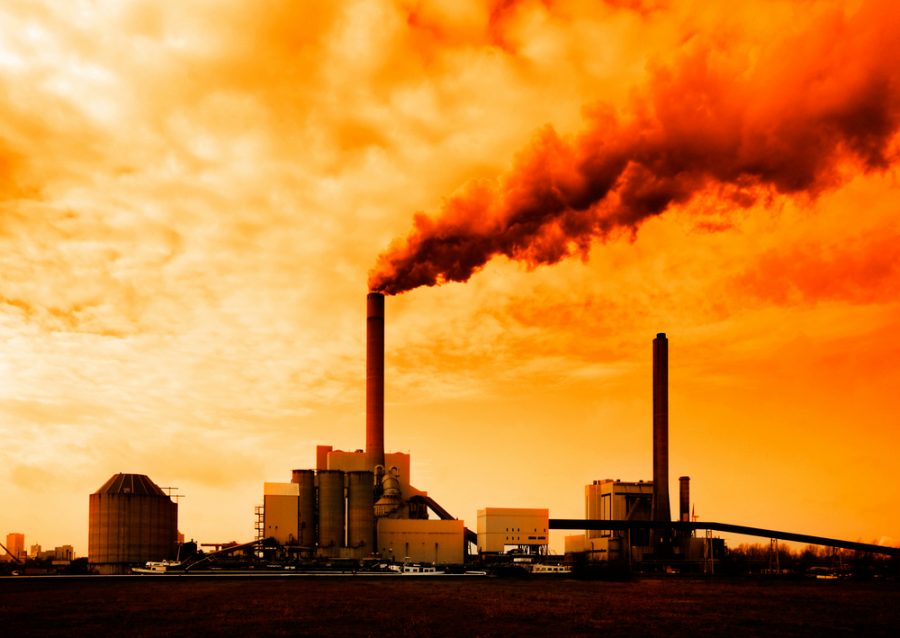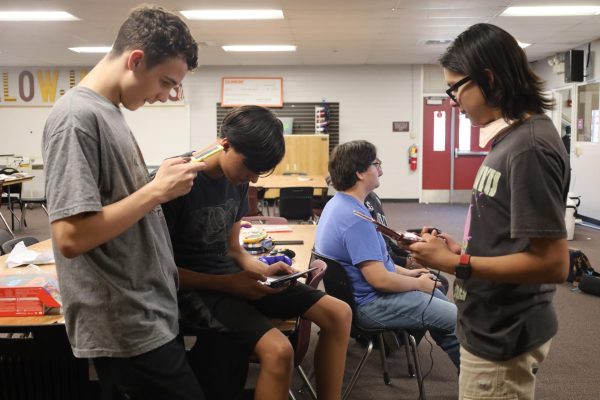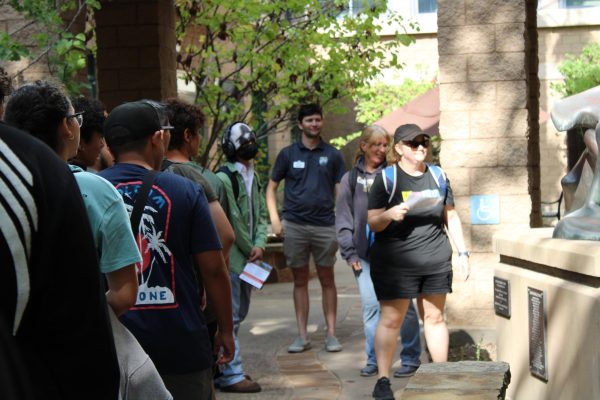Climate Change: Who does it affect
September 16, 2016
Since the mid 20th century humans have been dealing with climate change, or “an increase in the average atmospheric temperature,” as Dictionary.com defines it. But what does that actually mean?
President of the Eco-friendly Friends, Colton High’s environmental awareness club, senior Vanessa Villanueva says, “Mankind has played a significant role in the development of the climate change we are experiencing. This has been through our immense contribution to the intensity of the greenhouse gas effect, through the deforestation of large areas of the planet, as this causes a release of stored gases into our atmosphere, as well as the burning of fossil fuels. The changes humans have made regarding land use also contributes to the deterioration of our environment, not only due to pollution but also in the way it alters the connected systems.” Greenhouse gases act like a blanket as they trap energy into the earth and cause it to heat up.
Climate change is detrimental to animals because they risk disappearing habitats. If the earth continues to get warmer, up to ¼ of all the plants and animals on the planet could become extinct within the next 100 years. Villanueva says, “ A reason for this is that the change in conditions of the climate are not adequate for the survival of species’ already accustomed to previous conditions due to the lack of time to adapt.” Because each plant and animal contributes to the ecosystem either as predator, prey, food, shelter, etc, the loss of one species can result in the loss of many others. “This includes a fishless ocean by the year 2048 due to our overfishing and pollution of the oceans, which would have tremendous impact on the earth’s ecosystems.”
Humans are beginning to face the consequences of their own contributions to this problem as “Current projections express a very bleak future for our world.” Earth’s temperature has risen 1.5°F within the last century. In the next hundred years, earth’s temperature is projected to increase between 0.5 and 8.6°F. “Droughts and floods around the world are predicted to intensify due to climate change, meaning that the damages of such natural disasters will be increasingly devastating to societies, even reaching the point of making areas of the world uninhabitable.” Villanueva says.
According to the US Environmental Protection Agency, in places that currently do have a satisfactory supply of water, such as Northern California, water is being used to produce energy. When water becomes scarce in these places, they will not only lack water to drink and use for common purposes, but also experience blackouts because their main source of energy is gone. “Our population is projected to increase to 9 billion people by the year 2050. Imagine trying to sustain a population of this size with even less land than we have available for our current population.” says Villanueva.
“Though we already are experiencing the effects of climate change, we have the power to curb the negative impact it can have.”
So what actions do we need to collectively take as a society to save ourselves and our ecosystems?
Start by switching out your light bulbs for energy efficient lighting, use water more efficiently, save energy in your commute, etc. Villanueva says, “ It can be as simple as recycling any recyclable materials, avoiding or limiting your consumption of products or services that are actively polluting the environment, and spreading environmental awareness to those in your community.”
“Do not let the world that we have known and loved slip through our fingers when it can be avoided. Stand up for your right to prosper in it.”


















